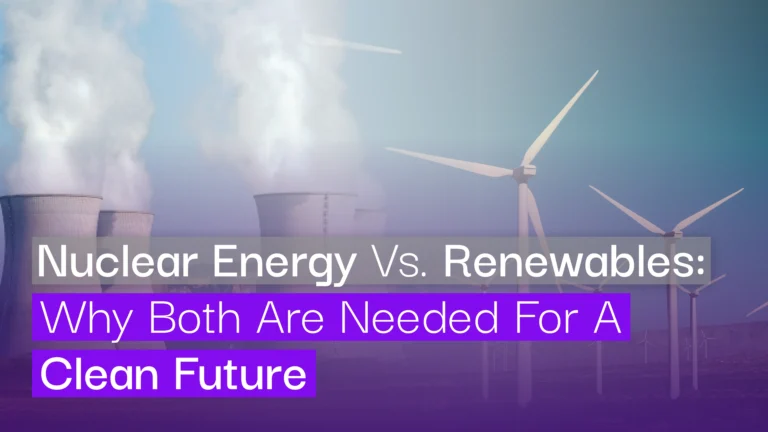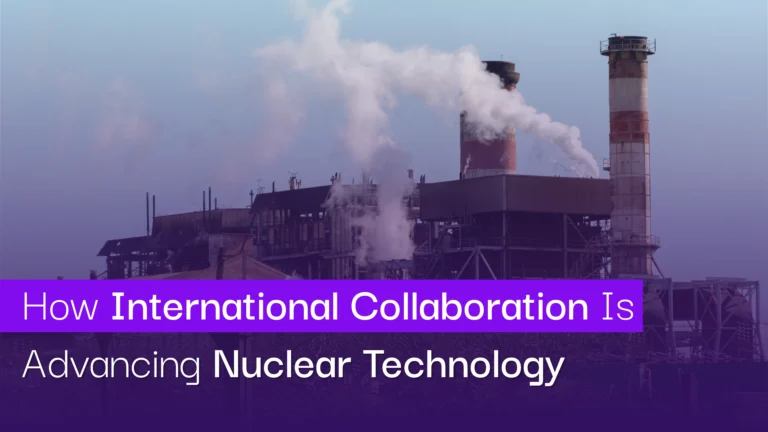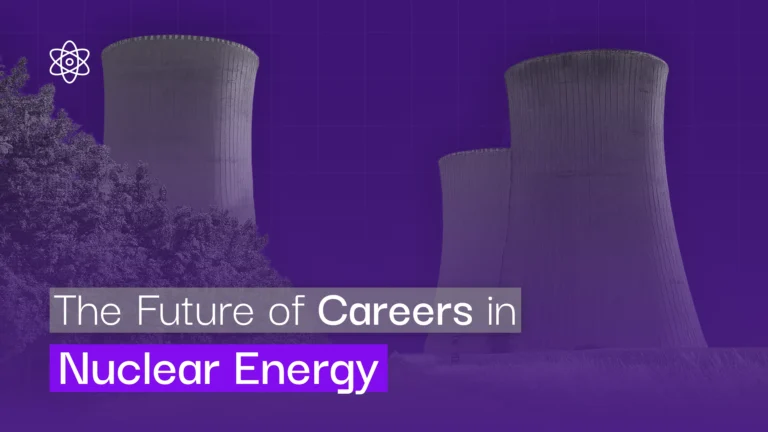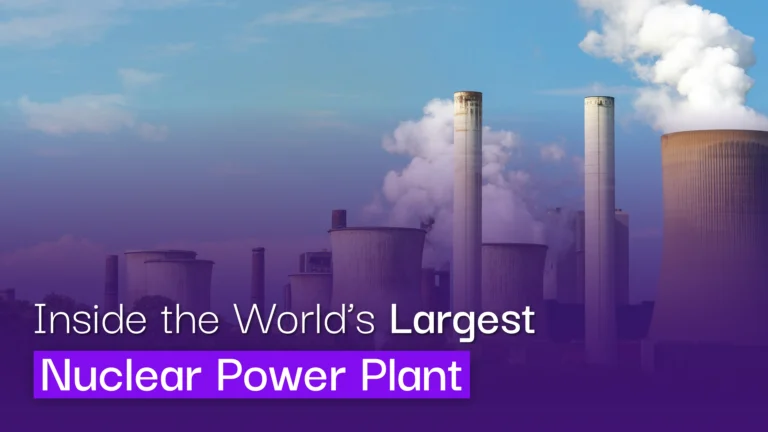The Economics of Nuclear Power: Costs, Benefits, and Investment Trends
The conversation around the economics of nuclear power is evolving rapidly as the world rethinks how it generates clean, reliable, and affordable energy. In 2025, nuclear power stands at the intersection of technology, policy, and sustainability, driving a new wave of investment and global talent demand. Companies like TRX International are helping bridge the gap by connecting nuclear engineers, scientists, and operators with growing opportunities across the global nuclear sector.
Understanding the Economic Case for Nuclear Energy
At its core, nuclear energy offers one of the most stable and efficient ways to produce electricity. Despite high initial capital costs, the long-term benefits often outweigh the upfront investment. Once operational, nuclear power plants deliver steady output with low fuel and maintenance costs, often running efficiently for 40–60 years.
Compared to fossil fuels, nuclear plants generate minimal carbon emissions, supporting nations in meeting climate goals. This makes nuclear power an attractive part of the clean energy transition, particularly as governments seek energy independence and net-zero commitments.
The growing interest in Nuclear SMRs (Small Modular Reactors) is reshaping the financial landscape. These smaller units require less upfront investment, shorter construction times, and offer scalability, making them ideal for both developed and developing nations.
Key Economic Drivers Behind Nuclear Growth
Several factors are influencing renewed investments in nuclear energy today:
- Rising global energy demand and the need for stable baseload power.
- Government-backed incentives supporting low-carbon infrastructure.
- Technological innovation in Nuclear Fusion and advanced reactors.
- Private sector investment driven by long-term ROI potential.
Organizations like TRX International play an instrumental role in supporting this ecosystem by providing nuclear staffing solutions, helping companies hire nuclear experts, engineers, and project managers to meet the evolving industry requirements.
Capital Costs vs. Long-Term Value
Building a nuclear power plant is undeniably expensive. Initial construction and regulatory compliance costs can reach billions of dollars. However, nuclear’s true economic advantage lies in its long-term operational efficiency. Once established, plants produce consistent power for decades, often outlasting renewable installations like solar or wind.
Furthermore, advancements in nuclear engineering jobs and nuclear project management are helping streamline costs. Modern technologies like modular fabrication and digital monitoring systems are enhancing construction precision and safety, improving return on investment (ROI).
The Role of TRX International in Supporting Global Nuclear Projects
As the nuclear sector expands, so does the need for specialized talent. TRX International stands at the forefront of nuclear workforce solutions, connecting companies with skilled engineers, consultants, and safety experts.
The company’s Nuclear Talent Database and CV analysis tools ensure that organizations can hire nuclear professionals who meet rigorous safety, regulatory, and technical standards. From nuclear operators to nuclear safety specialists, TRX International helps energy firms build a workforce capable of leading next-generation nuclear projects.
Benefits of Investing in Nuclear Power
Nuclear power offers several economic and environmental advantages that appeal to both investors and policymakers:
- Low operational costs: Once built, plants provide affordable electricity over decades.
- Energy security: Reduces dependence on imported fossil fuels.
- Job creation: Drives employment in engineering, operations, and nuclear careers.
- Innovation: Fuels advancements in Nuclear SMRs, waste recycling, and Nuclear Fusion research.
In parallel, companies investing in nuclear benefit from stable revenues and long-term energy contracts, especially in countries with growing industrial energy demand.
The Rise of Small Modular Reactors (SMRs)
Nuclear SMRs are transforming how nations approach energy production. Their compact design, enhanced safety features, and scalability make them a cost-effective solution compared to traditional large-scale plants.
Economically, SMRs lower financial risks for investors and utilities, as construction timelines are shorter and modular assembly reduces cost overruns. The integration of Nuclear SMRs into regional grids opens new pathways for localized power generation, especially in remote or developing areas.
These technological advances also create new nuclear power jobs, requiring recruitment of specialists who can design, install, and operate modular reactors. TRX International is instrumental in sourcing such niche skills from its Global Nuclear Talent Network.
Investment Trends and Market Outlook
Investment in nuclear energy is no longer limited to government programs. Institutional investors, private equity firms, and green funds are now recognizing nuclear’s economic and environmental potential.
The nuclear industry is seeing diversification in funding sources, with interest from Asia, the Middle East, and Europe. Additionally, the promise of Nuclear Fusion, the ability to produce limitless clean energy, has reignited confidence among investors looking at long-term innovation portfolios.
As companies ramp up their hiring initiatives, nuclear staffing agencies and nuclear recruitment specialists such as TRX International are key partners in building capable project teams globally.
Addressing Costs Through Innovation
Modern nuclear projects are far more cost-efficient than their predecessors. Through advanced construction methodologies, AI-based project management, and international cooperation, construction timelines are reducing significantly.
At the same time, nuclear workforce specialists are focusing on developing multi-skilled professionals who can operate across engineering, safety, and operations. This adaptability contributes directly to lowering operational costs and improving safety compliance.
Tools such as CV analysis and Nuclear Talent Database are central to this process, ensuring that only the most qualified individuals enter the workforce.
Nuclear Medicine Talent and Economic Value
Beyond power generation, nuclear technologies have major economic significance in healthcare. The demand for Nuclear Medicine Talent has increased sharply as more hospitals adopt isotope-based diagnostics and cancer therapies.
Countries investing in nuclear medicine infrastructure are not only improving healthcare outcomes but also creating skilled employment opportunities. TRX International connects organizations with nuclear medicine specialists, offering a unique blend of technical recruitment and talent development solutions.
Building a Sustainable Nuclear Workforce
The success of the nuclear industry depends on a steady pipeline of talent. Training, retention, and continuous learning are vital in maintaining operational excellence. TRX International supports this through:
- Nuclear talent management and workforce planning.
- Global nuclear talent sourcing initiatives.
- Access to a vast Nuclear Talent Database for immediate project deployment.
- Advanced CV analysis tools to evaluate and rank technical candidates.
This proactive approach ensures that companies have access to a skilled and compliant nuclear workforce ready to meet future challenges.
Challenges in Financing Nuclear Projects
While the economic case for nuclear is strong, challenges remain. High upfront capital, regulatory delays, and waste management complexities often deter private investors. However, with increasing government guarantees, carbon credit mechanisms, and modular technology, these hurdles are being gradually addressed.
The participation of experienced recruitment partners like TRX International mitigates risk by ensuring access to reliable talent and project support teams, reducing project delays and costs.
Future Investment Opportunities
The future of nuclear power looks promising. As energy grids evolve toward decarbonization, nuclear hiring solutions will remain critical. Emerging markets are looking to hire nuclear contractors, engineers, and nuclear scientists to lead sustainable energy transitions.
Additionally, as Nuclear Fusion research matures, we may witness a new industrial era built around limitless clean energy potential. This will call for strategic nuclear talent acquisition and leadership development on a global scale.
Also Read – Women in Nuclear: Breaking Barriers in a Growing Industry
Conclusion
The economics of nuclear power reveal a dynamic balance between cost, innovation, and sustainability. With Nuclear SMRs, Fusion technologies, and a renewed global commitment to clean energy, nuclear is poised to play a defining role in the world’s energy future.
TRX International continues to empower organizations through its Nuclear Talent Database, CV analysis, and Nuclear Medicine Talent initiatives, bridging the gap between technology and human expertise. As nations invest in nuclear expansion, one thing is clear: success will depend not just on reactors, but on people.
Frequently Asked Questions (FAQs)
Q1. Why is nuclear power considered economically viable?
Nuclear energy offers long-term cost benefits through efficient, low-carbon, and reliable power generation that outlasts most renewable sources.
Q2. What role do Small Modular Reactors (SMRs) play in reducing costs?
Nuclear SMRs offer scalable, cost-effective designs that lower construction and financial risks while providing flexible deployment options.
Q3. How does TRX International support the nuclear sector?
TRX International provides nuclear staffing solutions, CV analysis, and access to its Nuclear Talent Database to help organizations recruit skilled professionals globally.
Q4. What is the link between nuclear energy and medicine?
The growth of Nuclear Medicine Talent drives advancements in diagnostics, imaging, and cancer treatments, creating both healthcare and economic value.
Q5. What is the investment outlook for the nuclear industry in 2025 and beyond?
With government incentives, private investments, and the rise of Nuclear Fusion technologies, nuclear power remains a key component of the global energy transition.






